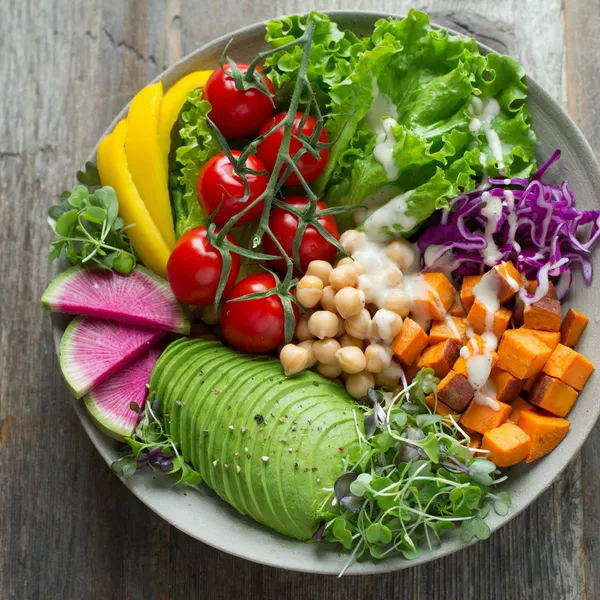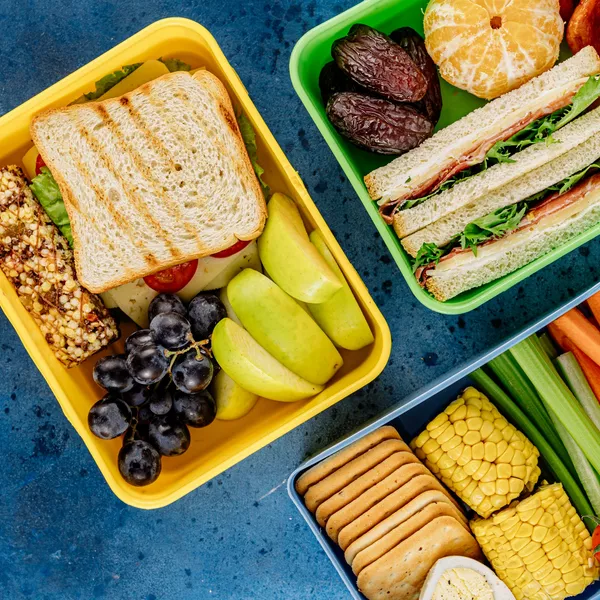Write a weekly meal plan
Most people who’ve been successful in implementing healthy eating habits long-term have not left their food choices up to chance. They’ve planned to eat well, in one way or another, and they’ve created meal plans that set themselves up for success and not failure.
If planning every meal and snack for you and your family feels overwhelming, then just start off with planning one meal or snack each day. Maybe it’s dinner, or maybe it’s work lunches. Whatever it is, make sure you keep it simple. If your meal plan is too complicated, you won’t follow it.
Write a shopping list divided into fruit/veg, pantry items and perishable items
Shopping gets dangerously expensive and full of impulse buys and convenience food when you head into the supermarket without a list. A list separated into fruit/vegetables, pantry items and perishable items is very easy to shop from, and you won’t find yourself wandering all over the whole supermarket. It’ll cut down your shopping time, plus help you stick to your weekly food budget.
Cross-reference your shopping list with your current fridge/pantry supplies
Every day, people waste a lot of food, most of which is perfectly fit for eating. Once you’ve created your shopping list, cross-reference that list with what you’ve already got in your kitchen.
Also make a point of using up any leftover fresh or perishable food in the first one to two days of your meal plan, so it doesn’t go to waste.
Shop online
Shopping online is convenient and can save you a lot of money – mostly because you’re not exposed to aisle after aisle of promotional displays and potential impulse buys. It’s much easier to stick to buying just what’s on your list without that temptation.
Get fruit and vegetables delivered
There are a number of companies that will deliver seasonal produce straight to your door either weekly, fortnightly or monthly. It’s a great way to stay stocked with fresh, healthy foods.
Buy seasonal produce
Buying seasonal produce is important from both a price and a quality perspective. Seasonal produce is cheaper – as it’s in high supply – and tastes better because it’s often picked, shopped and sold more quickly. Get familiar with what’s in season in your local area and practice incorporating these produce items into your meals.








